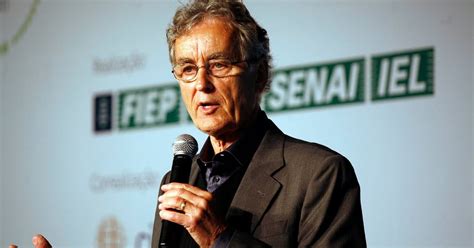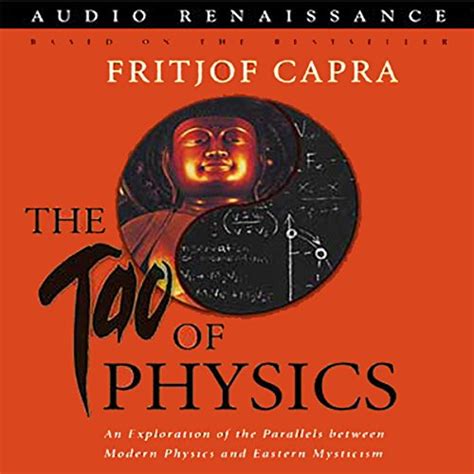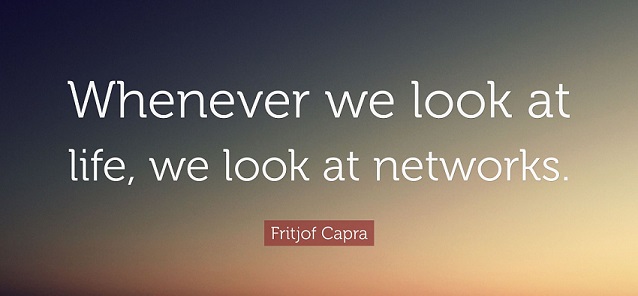|
home | what's new | other sites | contact | about |
|||
|
Word Gems exploring self-realization, sacred personhood, and full humanity
Quantum Mechanics
return to "Quantum Mechanics" main-page
website: https://www.fritjofcapra.net/
from the youtube interview https://www.youtube.com/watch?v=kBJFJVZMnlo … the urgent problems of our time [caused by dualistic thinking which divides people into warring camps]… we fail to take into account a fundamental interdependence of all phenomena and activities [in the world], an inability to see the world as a process rather than a rigid structure… the clockwork universe … a holistic and ecological vision of reality… When Descartes spoke of a machine [as a metaphor of the universe] he meant a clockwork… When a clock does not work properly, there’s usually one particular cog [that is out of line or needs repair] … the Cartesian method of analysis is to take a complex problem and breaking it into pieces, analyzing the pieces, and putting it back together again… This process works well for the macro-world but when dealing with the quantum realm, new models of thought are required… At the subatomic level, the commonplace world of cause-and-effect no longer applied… on that level, all we can get are probabilities… and so the next step was to ask, what are these probabilities of? A probability of what? The big surprise was, there was no probability of things but of an interconnection of things. So, a particle for a physicist is not a thing – it’s not a grain of sand or a billiard ball – it is an interconnection of things. And then you ask, what are these things? And then you find out, these too are interconnections; and so, the more you look, the more you find out there are no things at all in the atomic and subatomic world… Reality reveals itself in experiments as a web of interconnected relationships, a network of interconnected events. And that was very hard to accept for physicists because they were used to dealing with hard and solid things. In fact, physics is called “the hard science” or “the queen of the hard sciences.” And that came from the classical Newtonian world – the world is made of hard “billiard balls.” And now these hard objects dissolve into a pattern of probabilities… the illusion of control [Quantum theory allows for probabilistic answers, not definite answers, but -] our modern science, ever since the seventeenth century [with Descartes], has been obsessed with “control.” It’s a patriarchal attitude and it’s led us to disaster, for example, politically, as we exploit the third world; for, you see, exploitation is not very far from control. The industrialized world is based upon this notion of control. And we have pursued this in physics. We talk about “controlled” experiments and controlling nature; and you see, this is a profound difference between the world of mechanistic science and the world of spiritual traditions. [For example] in Taoism there is not talk of controlling nature but harmonizing oneself with nature, about “flowing in the current” of this reality. And I think we have to adopt this attitude of cooperating with nature, as there’s no way to control it. Nature is a living environment with whom we have to live and communicate – if we want to survive. mysticism is not misty but rather enlightening, offering clarity Eastern mysticism is thought of as "misty," pejoratively described in the West as fuzzy thinking, but there’s nothing misty or fuzzy about it. Rather, those of the East speak of a great clarity, an enlightenment, when entering into oneness with nature. But – it’s not a “rational” experience in that it goes beyond the thinking mind and accesses an intuitive wisdom. Capra speaks to Heisenberg Heisenberg told me personally that he was in full agreement with what I wrote in my book The Tao Of Physics. Heisenberg had had long discussions with Eastern mystics and Heisenberg told me that these discussions had helped him very much and showed him that this Eastern worldview was well in line with quantum theory. Because everything at the quantum level is connected, then if you are violent to any part of system, ultimately, you are violent to yourself.
|
|||
|
|



